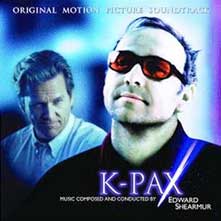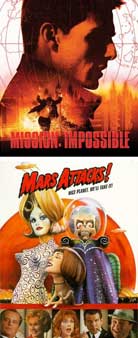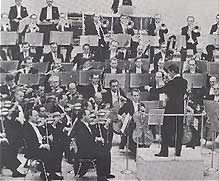
The note at the top of the page says that the site layout is currently broken in firefox. It turns out that I royally screwed something up while trying to "Improve" Things around here. As a result, I’ll have to recode the site structure and css from scratch. Until then, sorry firefox users. I commend you for your independent spirit, but for now you’ll have to scroll to the bottom of the page to see the sidebars.
However, that’s not the only type of glitch in these parts lately. I ran across Nobukazu Takemura’s hoshi no koe the other day. Takemura is a guy I was first introduced to in new orleans 5 years ago in june 2001. He was opening for Tortoise and Mouse on Mars at the howlin’ wolf. (by the way, best concert ever. it’s not often you get to see a band at the height of your fandom for them.)
It was my first exposure to both the glitch genre of music and the concept of a ‘laptop performance.’ For 30+ minutes this Japanese guy with a long pony tail sat calmly behind a table, meticulously twisting dials, pushing buttons and manipulating his powerbook, creating a perfect, swirling mess of sounds… And I was mesmerized by it. By the time he was half way through Sign and those dueling artificial voices had finished their seemingly-never-ending chant, I was hooked.
I bought Hoshi no Koe that night after the show and quickly launched an effort to acquire as much Takemura as I could. It was a foolish endeavor; The dude is as prolific as he is obscure (not to mention foreign) and I had a hard enough time tracking down a full discography, let alone much of his music.
Eventually, I gave up on that particular tunequest as it proved nearly impossible. Besides, the thing I came to slowly realize about Takemura’s music is that it’s very dichotomic. It’s either so brilliantly clever that you want to shout "Oh my god, that’s awesome!" Or it’s completely and totally unlistenably abstract, the type of compositions that certain people who want to prove their intellectual mettle listen to. A similar phenomenon occurs throughout the genre. However, lesser composers than Takemura lean distinctively toward the latter opinion.
In the end, despite the short burst of passion, my affair with glitch was short-lived. As I’ve mellowed with age, I’m not as likely to indulge in the less listenable as I find that my musical tastes are for my own enjoyment and not to impress the kids with some kind of street cred.
But Takemura, the man is still fascinating.

 two danny elfman scores from 1996 made their way through my ears to my brain this week: mission: impossible and mars attacks! and while i enjoyed both films more than the general public seemed to, i had a mixed response to their scores.
two danny elfman scores from 1996 made their way through my ears to my brain this week: mission: impossible and mars attacks! and while i enjoyed both films more than the general public seemed to, i had a mixed response to their scores.

